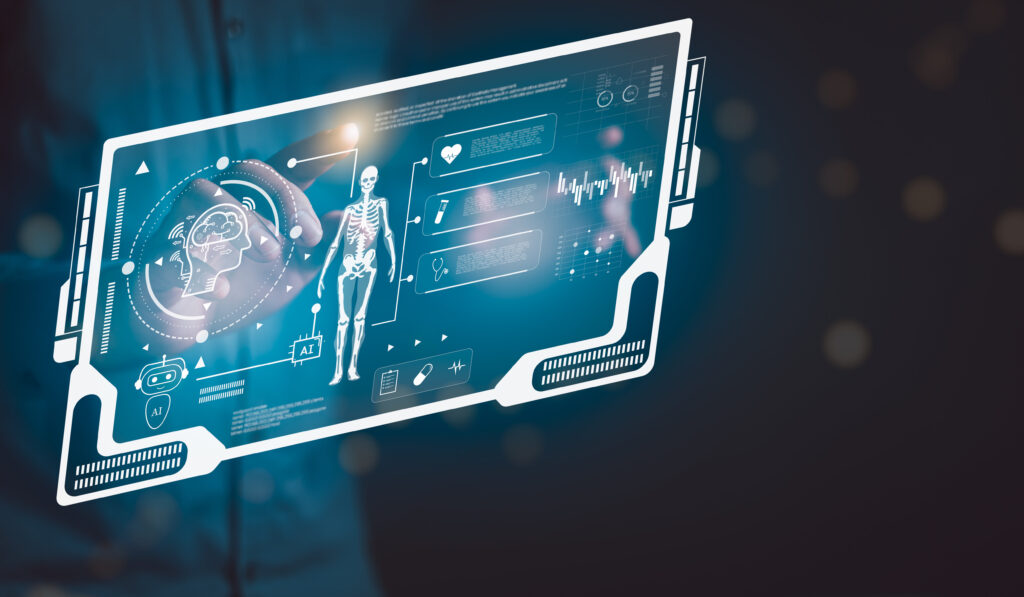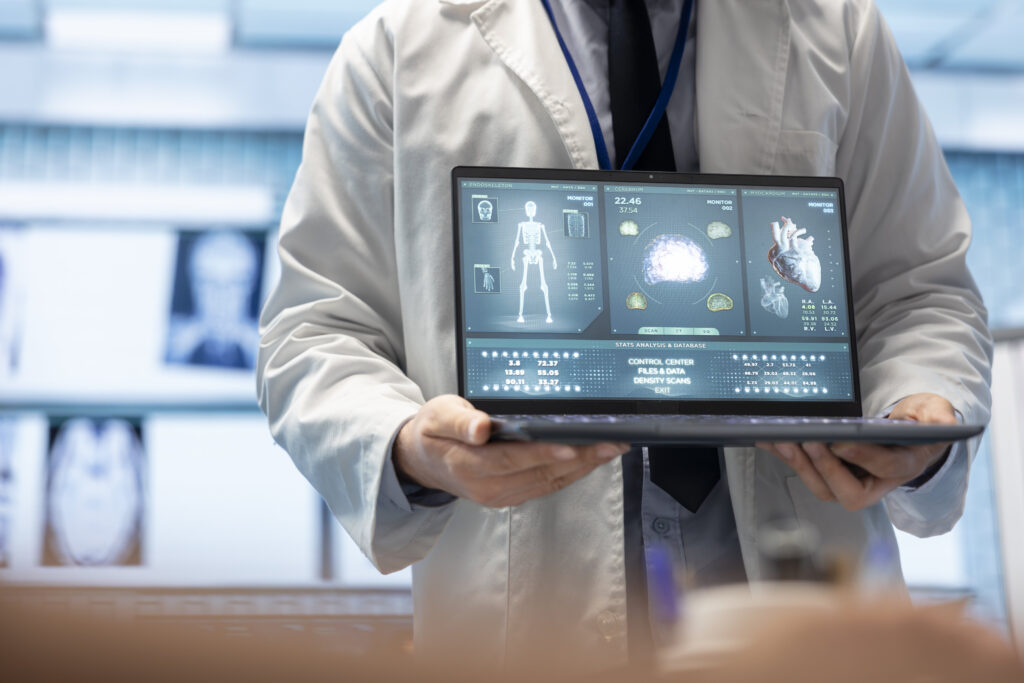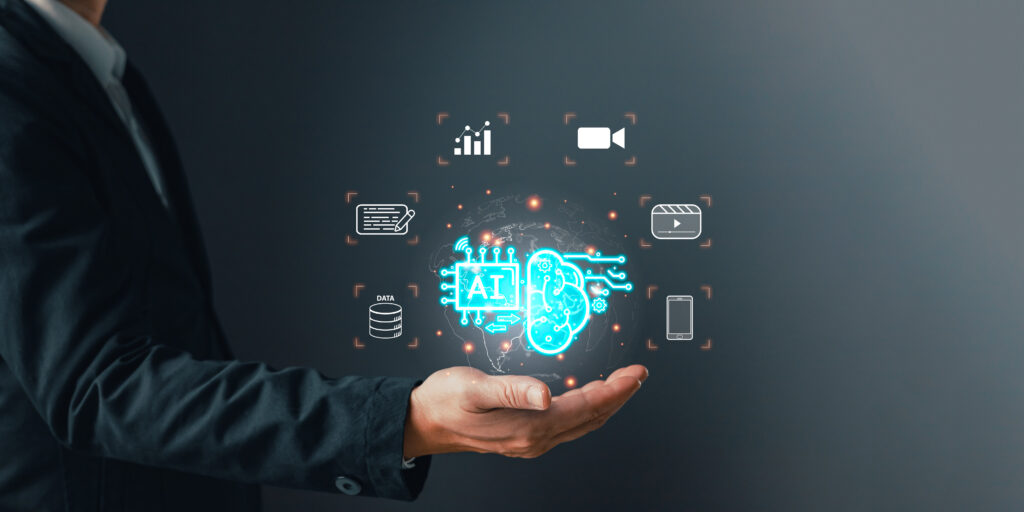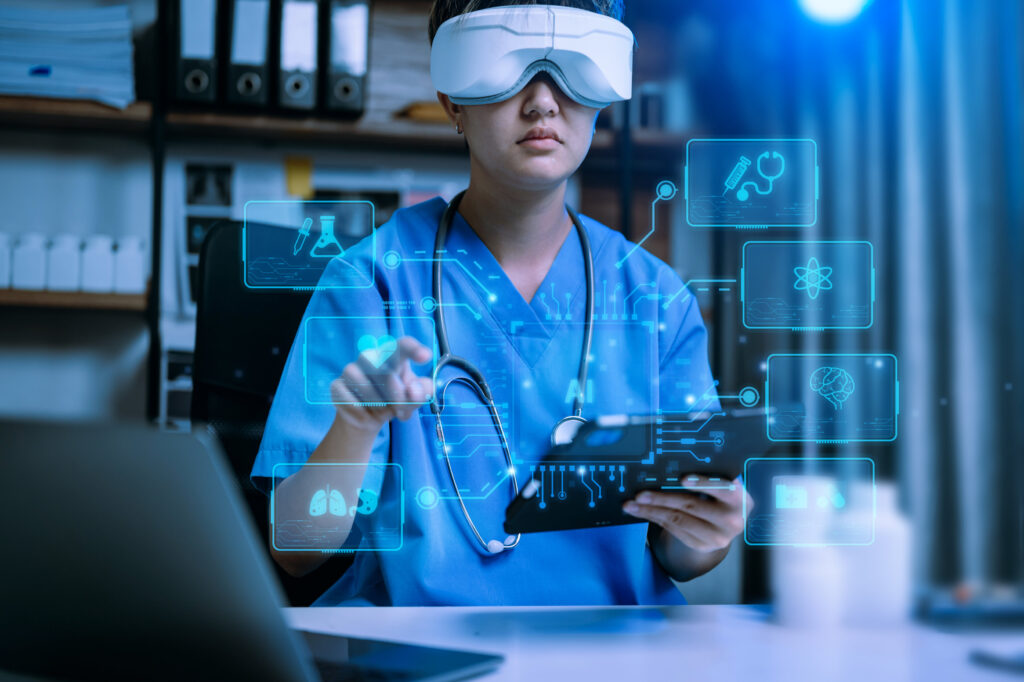Table of contents:
Artificial intelligence and healthcare are working in tandem to revolutionize medical care. The healthcare sector has used AI in a variety of ways, from record maintenance to personal assistance. It has greatly redefined methods doctors employ to diagnose, treat, and monitor their patients.
Suffice to add that AI use in the healthcare sector has improved research methods, which facilitates a larger percentage accuracy in diagnosis. Therefore, it is evident that by incorporating AI in hospital clinics, the sector will be more efficient and smarter in handling health issues. This article explores the wonders of AI in the healthcare sector.
What is AI in Healthcare?
Artificial intelligence (AI) in healthcare refers to the use of machine learning, natural language processing, deep learning, and other AI technologies to improve the experiences of both healthcare professionals and patients. The data-processing and prediction properties of artificial intelligence empower healthcare practitioners to enhance resource management and adopt a more proactive stance towards several facets of healthcare.
With these AI technologies, doctors can make more accurate diagnoses. Then, health administrators can efficiently locate electronic health records, and patients can receive timely and personalized treatments, which ultimately lead to improved health outcomes and enhanced patient care.
Types of AI in Healthcare
AI is a broad term that encompasses various interconnected processes. The following are some of the most common forms of AI used in healthcare:
- Machine Learning: Training algorithms using data sets (e.g., health records) to create models that can categorize information or predict outcomes.
- Deep Learning: This is a sunset of machine learning that involves larger volumes of data, longer training times, multiple layers of ML algorithms, and produces neural networks capable of complex tasks.
- Neural Language Processing: In healthcare, NLP is used to interpret documentation, analyze notes and reports, and review published research.
- Robotic Process Automation (RPA): Using AI in computer programs to automate administrative workflows and clinical workflows. Some healthcare organizations use RPA to enhance the patient experience and improve daily facility operations.
Uses of AI in Healthcare
1# AI Supports Medical Imaging Analysis
AI can assist a clinician in reviewing images and scans. This enables medical professionals to identify essential information for prioritizing critical cases and, as such, avoid potential errors in reading electronic health records (EHRs).
For example, an MIT research team made a big breakthrough in image analysis. They created a machine-learning algorithm that can analyze 3D scans much faster than before—up to 1,000 times faster. This means surgeons can get important information quickly while operating. This technology could also lead to new radiology tools that don’t need tissue samples. This is a big step forward for medical imaging.
Furthermore, AI image analysis can adequately enhance medical access for people residing in rural areas. Telemedicine enables the use of phone cameras to send pictures of rashes, cuts, or bruises to determine the appropriate treatment for the patient.
By leveraging AI in medical imaging analysis, healthcare professionals can enhance diagnostic accuracy.
#2 AI Aid Clinical Diagnosis
According to recent statistics by NIM, approximately 400,000 hospitalized patients suffer preventable harm every year, with 100,000 deaths.
However, AI has the capability to reduce these errors by analyzing vast amounts of medical data and making accurate predictions and diagnoses faster than a qualified number of medical professionals.
Therefore, healthcare practitioners can leverage AI in medical diagnosis, as it can provide more accurate and timely diagnosis, which ultimately reduces morbidity and mortality rates.
#3 AI-Assisted Robotic Surgery
Robot-assisted surgery is an advanced technique that utilizes specialized robotic platforms to enhance the precision of surgeons’ movements during complex procedures and in small anatomical spaces.
Robots can analyze data from pre-op medical records to guide a surgeon’s instrument during surgery, which can lead to a 21% reduction in a patient’s hospital stay. This AI technology has an estimated $40 billion in healthcare value and can significantly improve patient care and outcomes.
With the help of artificial intelligence, robots can use data from past operations to inform new surgical procedures. Subsequently, surgeons will issue instructions to other team members who work closely with the robot throughout the procedure. A study of 379 orthopedic patients showed that using AI-assisted robots in surgery resulted in five times fewer complications compared to surgeries performed by human surgeons alone.
This AI development offers several benefits, including fewer surgical complications, such as surgical site infection, minimal pain, reduced blood loss, a shorter hospital stay, quicker recovery, and fewer noticeable scars.
4# AI in Healthcare Data Management
Huge data points can sometimes confuse or misplace sensitive and important information. Also, the inability to connect important data points slows the development of new drugs, preventative medicine, and proper diagnosis.
AI has the ability to handle big volumes of data. By utilizing AI’s capabilities, we can break down data silos and establish connections between crucial data points in minutes instead of years. AI’s ability to handle massive data volumes revolutionizes healthcare data management, which as a result leads to better outcomes and more efficient care.
#5 Easy Workflow and Administrative Tasks
AI can automate administrative tasks. This demonstration is part of the partnership between Cleveland Clinic and IBM. AI supports administrative tasks in healthcare by transcribing voice-to-text, ordering tests, prescribing medications, writing chart notes, and mining big data to deliver personalized and efficient treatment experiences.
IBM’s Watson AI technology can help analyze large amounts of data, identify patterns, and provide insights that can assist physicians in making informed decisions. This collaboration showcases the potential of AI in streamlining administrative tasks, reducing workload, and enhancing patient care.
What are the Benefits of Using AI in Healthcare?
Using AI to support diagnostics offers several benefits.
Faster Diagnosis
AI speeds up the diagnostic process, reducing the workload on medical professionals.
Earlier Diagnosis
AI helps identify symptoms earlier, even before a patient presents at triage, and enables monitoring to detect illnesses before they become severe.
Improved Accuracy
AI suggests potential diagnoses that professionals can confirm by comparing symptoms against a vast medical literature and big data.
Population Trend Analysis
AI analyzes large data sets to identify patterns and trends, enabling proactive healthcare strategies.
How We Can Help
North South Tech develops AI systems that transform healthcare operations. We create tools for faster, more accurate medical imaging analysis, enabling clinicians to spot issues earlier and prioritize critical cases. Our diagnostic support software sifts through vast medical databases, suggesting potential diagnoses to aid medical professionals.
For hospitals looking to embrace robotic surgery, we develop AI that guides surgical instruments with precision, reducing complications and patient recovery time. We also craft solutions to tackle the administrative burden, automating tasks like voice-to-text transcription and test ordering.
Data management is another key focus. Our AI systems break down information silos, connecting crucial data points to accelerate drug development and improve preventative care strategies.
Interested in bringing these innovations to your healthcare facility? Let’s discuss how AI can enhance your specific operations and patient care. Send us a message to start the conversation about modernizing your healthcare technology.





